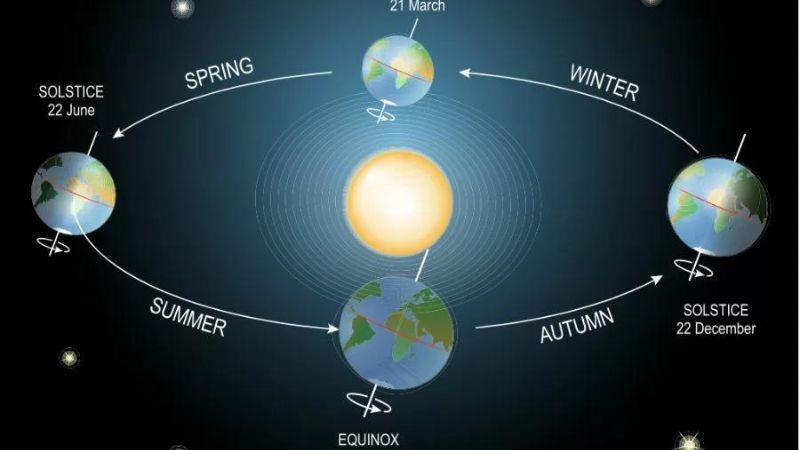2024 is a notable year not only in terms of economy and society but also in the realm of time and dates. Many people are interested in and searching for information on whether 2024 is a leap year and, if so, which month has the extra day. In this article, we will delve into whether 2024 is a leap year and determine its leap month.
1 Is 2024 a Leap Year?
Leap Year in the Gregorian Calendar:
- To determine if 2024 is a leap year in the Gregorian calendar, you simply divide the year by 4. If the result is an integer (a whole number), meaning the year is divisible by 4, then it is a leap year in the Gregorian calendar.
- In the case where the year ends with two zeros, you also need to check if the year is divisible by 400. If the year is divisible by 400, then it is considered a leap year as well.
- So, to check if 2024 is a leap year in the Gregorian calendar, you perform the division: 2024 / 4 = 506. The result is an integer, so 2024 is a leap year in the Gregorian calendar. This means that 2024 will have 366 days, with February 29th being the leap day.
Leap Year in the Lunar Calendar:
- Calculating leap year in the lunar calendar is more complex than in the Gregorian calendar. In the lunar calendar, if a year is divisible by 19 with a remainder of 0, 3, 6, 9, 11, 14, or 17, then it is considered a leap year.
- For the year 2024 (Year of the Wood Dragon), you perform the division: 2024 / 19 = 106 remainder 10. Since the remainder is not among the values 0, 3, 6, 9, 11, 14, or 17, 2024 is not a leap year in the lunar calendar. In the lunar calendar, 2024 will not have a leap month.
- Therefore, the conclusion is that 2024 is a leap year in the Gregorian calendar with 366 days, but it is not a leap year in the lunar calendar and does not have a leap month.
 Is 2024 a Leap Year?
Is 2024 a Leap Year?
2 Which Month is the Leap Month in 2024?
2024 is a leap year in the Gregorian calendar, so the leap month in 2024 is February. February in 2024 will have a leap day, which is February 29th, while in non-leap years, February only has 28 days.
3 How Many Days Does 2024 Have?
2024 is a leap year in the Gregorian calendar, so it will have a total of 366 days. Instead of the usual 365 days in non-leap years, a leap year like 2024 has an extra leap day, which is February 29th.
 How Many Days Does 2024 Have?
How Many Days Does 2024 Have?
4 Frequently Asked Questions
What is a Leap Year?
To make the Gregorian calendar align with the Earth’s rotation, we add one day to leap years to compensate for the 6-hour difference. The leap day is added to February, creating February 29th.
By adding a leap day, leap years in the Gregorian calendar will have a total of 366 days, while non-leap years only have 365 days. This helps to synchronize the measurement of time with the Earth’s rotation and ensure that the seasons (spring, summer, autumn, and winter) occur at their corresponding times each year.
 What is a Leap Year?
What is a Leap Year?
The Special Significance of Leap Years
The special significance of leap years in the Gregorian calendar is to adjust the discrepancy between the Gregorian calendar and Earth’s orbital motion. Every 4 years, we add one leap day to the calendar to account for the extra time (a total of 24 hours) caused by Earth’s orbit around the Sun not being exact relative to the 365-day cycle.
Typically, in a leap year in the Gregorian calendar, we add a leap day to February, making it 29 days instead of the usual 28 days. This helps to achieve better synchronization between the Gregorian calendar and Earth’s orbital motion. Thanks to this adjustment, we can maintain a standardized and convenient calendar system for measuring and tracking time in daily life.
There is also a similar adjustment in the lunar calendar, widely used in Asian countries. In the lunar calendar, to ensure that the lunar year aligns with a lunar cycle and does not deviate in phase from the seasons, one leap month is added every 3 lunar years. In addition, every 19 years, there will be a year with an extra leap month, and there will be a gap of 2 years between consecutive leap months. The addition of leap months in the lunar calendar helps to maintain synchronization between the lunar cycle and the seasons in a year, and is used to regulate traditional festivals, events, and daily activities in Asian countries.
 The Special Significance of Leap Years
The Special Significance of Leap Years
Calculating Leap Years Accurately
To determine whether a given year is a leap year, the following rules apply:
In the Gregorian Calendar:
- Divide the year by 4: If the result is divisible by 4 without a remainder, then it is a leap year. For example, 2024 is divisible by 4, so it is a leap year.
- However, there is a special rule for centennial years (years ending in two zeros). If a centennial year is divisible by 400 without a remainder, then it is also a leap year. For example, 2000 and 2400 are divisible by 400, so they are leap years.
In the Lunar Calendar:
- To determine whether a year in the lunar calendar is a leap year, the following rule applies: Divide the year in the Gregorian calendar by 19. If the result is divisible by 19 or has a remainder of 3, 6, 9, 11, 14, or 17, then it is a leap year with a leap month.
 Calculating Leap Years Accurately
Calculating Leap Years Accurately
2024 is a leap year and has February as the leap month with 29 days. With this information, individuals can plan and organize activities for the year 2024 accurately.
The Origin and Meaning of Lunar New Year: Exploring the Celebration
The vibrant and joyous celebration of Lunar New Year is a festival steeped in tradition and held dearly by the Vietnamese people. This article will explain to you the rich history and symbolism behind this important event – Tet!
2023 Seventh Month Kitchen God Offering: Full Details Revealed
2023 marks an important spiritual milestone for many families as the seventh lunar month’s full moon day brings with it the customary worship of the Kitchen God. Find out the specific and intricate steps involved with the traditional Kitchen God worship ritual on the 23rd day of the twelfth lunar month.
Exploring the Significance of Theater Ancestor Worship Day
Are you wondering which day honors the ancestors of the theater industry in Vietnam? Today we are exploring Vietnamese Theater Day and its importance in recognizing the legacy of those who blazed trails in the performing arts. Let’s dive into the history and meaning behind this day of honoring the ancestors of the theater industry.





































